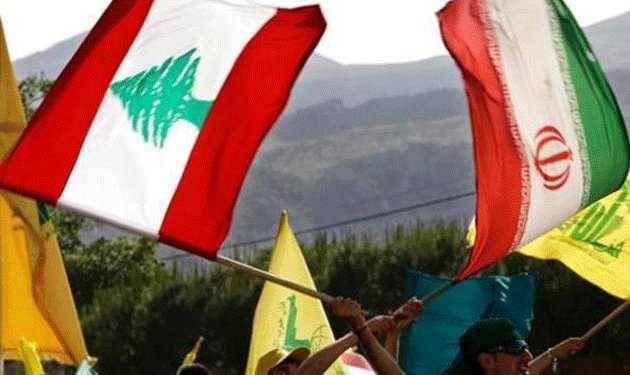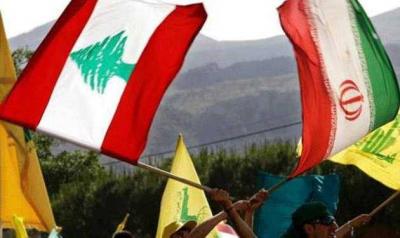The recent Israeli strike on the Iranian consulate in Damascus, along with the assassination of several officials and officers from the Iranian Revolutionary Guard, including those responsible for the Lebanese file and coordination with Hezbollah, has had negative repercussions and reactions on the Lebanese scene. This event is linked to the conflict led by Hezbollah against Israeli occupation forces along the southern Lebanese border and has heightened the complexities surrounding the multifaceted internal crisis, making it difficult to approach any efforts or mediation for its resolution at this time, as reported by "Al-Lawaa."
While some had hoped for some form of alleviation following a serious and stable ceasefire in Gaza, which could lead to a limited breakthrough in the crisis file by electing a president and forming a new government, Israeli assaults have intensified, targeting Revolutionary Guard officers in Damascus. This has created a tense security reality, with any mediation efforts for resolving the crisis now hindered by the consequences of the assassination and its reactions, particularly regarding Iranian responses, amid significant difficulties in separating the rapid developments from the efforts to achieve any breakthrough in the Lebanese crisis.
Since the start of the military confrontation between Hezbollah and Israel six months ago, Hezbollah has linked the launch of the presidential election process and internal crisis resolution to the end of the Gaza war, obstructing all attempts by internal political parties and foreign envoys to find a suitable solution out of the crisis, claiming distraction with confronting Israeli attacks. Today, the assassination of Revolutionary Guard officers in Damascus has provided another pretext for Hezbollah to evade responsibility for impeding the presidential elections and to place obstacles in the way of any efforts from Arab or friendly countries under the excuse of sheltering behind this dangerous operation and its repercussions, further complicating the internal crisis.
Given this deteriorating reality and the attempt to link the intense military confrontation between Hezbollah and Israeli occupation forces along the southern Lebanese border to the potential outcomes of the confrontation between Iran and Israel at the highest levels in the upcoming weeks, especially if Iran insists on seeking revenge for the destruction of the Iranian consulate in Damascus from Lebanon or even other secondary fronts or Iranian territory, although this is unlikely due to Tehran's fear of devastating Israeli responses, the Lebanese situation remains tied to the fate of the Gaza war specifically and the ongoing wars surrounding it. This will determine the trajectory of developments and their impact on the heated confrontation between Hezbollah and Israel in the south.
It is clear that Israel's insistence on widening the scope of armed engagements in the south and outside the Gaza Strip, conducting assassination operations against leadership and officers of the Iranian Revolutionary Guard throughout Syrian territory, and striking Hezbollah bases deep within Lebanese territory, has put the Iranian regime and its ally Hezbollah in a difficult position, facing one of two options: either respond to the assassinations and targeting operations with a qualitative Iranian operation or from one of Tehran's arms in neighboring countries, attempting to regain at least minimal credibility before public opinion and the axis allied with them; or they could merely continue with a deluge of threats and promises while keeping the situation tense and on the edge of conflict, with the latter option being more likely to persist.
In any case, the implications of the destruction of the Iranian consulate in Damascus and its ramifications on the Lebanese arena cannot be ignored, which currently appears to be racing to separate the southern front from the course of the Gaza war and its results, although such wishes seem challenging given the Iranian regime's insistence on utilizing the southern Lebanese front as a launching point for consolidating its influence through solidarity and support for Gaza. Meanwhile, Hezbollah emphasizes the continuation of engagements against Israeli occupation forces amid aggression against the Palestinian people. There is also a race to accelerate U.S. diplomatic efforts led by American presidential adviser Amos Hochstein to soothe deteriorating conditions in the south and reach an understanding to implement United Nations Resolution 1701, or to drift toward re-establishing Lebanon as a platform for conveying messages and settling accounts in service of Iran's interests, which would inflict destructive damages on all of Lebanon, according to "Al-Lawaa."




